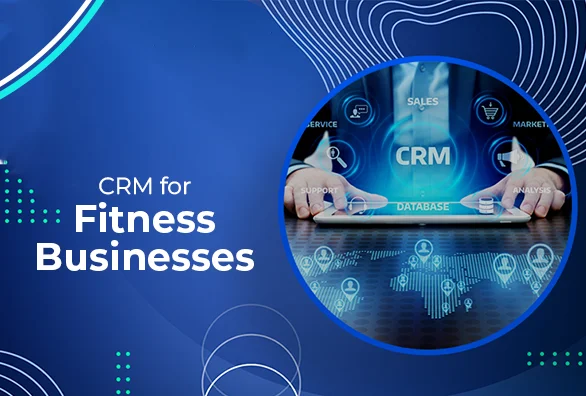
The logistics sector has experienced radical transformation over the past years, which has been brought about by the growing need of speed, efficiency and customer satisfaction. Customer Relationship Management (CRM) systems are the core of this transformation and have become essential tools that have made logistics companies not only effective in customer interaction but also in facilitating processes and increasing profitability.
The benefits that come with CRM in logistics are numerous, as it can be used to streamline the process of an order, as well as give valuable insights that can be used to make smarter decisions. This article will discuss how CRM systems are transforming the logistics industry, their influence on efficiency, communication, customer service and general growth.
Table of Contents
Key Benefits of CRM in Logistics
Automation and Operational Efficiency
Automation and optimization of the daily routine activities of logistics is one of the main benefits of the CRM, which significantly increases operational efficiency. An example of such routine processes that can be automated using CRM systems includes order entry, invoicing, inventory and route planning. Automation reduces the aspect of human error, it also speeds up the processing time and it will also liberate the resources to concentrate on other more important activities.
As an illustration, a CRM with an order management system (OMS) can be able to automatically post the inventory amount when the shipment is made and this way the supply chain is able to be accurate in real-time. Not only does this enhance accuracy but it also allows the logistics managers to manage increased amounts of shipments without compromising quality or efficiency.
Improved Customer Service and Customer Satisfaction
Customer satisfaction constitutes a success factor in logistics. CRM systems enable organizations to record customer orders, likes and dislikes, and the history of communication with them, which provides them with individual services that can add value to the overall customer experience. Being a single point of customer information, logistics companies will have an opportunity to prevent problems before they get out of control, answer questions faster, and create a more personalized service.
Real-time tracking also requires CRM due to the ability of customers to be informed about the location of their shipment on time. Such openness builds trust and enhances customer satisfaction, which will result in increased customer retention and loyalty. In addition, CRM information assists companies to know frequent problems and refine operations to overcome the areas of suffering along the service delivery chain.
The Power of Insights to Smarter Decisions
CRM systems can deliver insights based on data and this is one of the strongest aspects that can support companies involved in logistics to make better decisions. Through CRM in logistics software, companies will have real-time information about customer orders, shipment routes, stock levels among others. Such an Information Overload helps firms to identify areas of slow progress, monitor key performance indicators (KPIs), and effect change that helps them to achieve higher profitability.
The data analysis can be used as an example to determine the routes which are always delayed so that the logistics providers can re-optimise their delivery schedules. The CRM in logistics systems are also capable of monitoring the customer feedback and customer satisfaction indices thus allowing the business to know where it needs to improve in terms of service provision and logistic operations.
Efficient Communication and Co-operation
Good communication is a pillar of proper logistics. The CRM in logistics systems are also critical in ensuring a smooth flow of communication among different stakeholders within the supply chain such as the suppliers, warehouses, delivery teams and the customers. CRM platforms centralize data and communication to make everyone on the same page as they minimize the possibility of misunderstandings and delays.
As an example, live data access can enable the customer service representatives to respond to the customers promptly, and logistics departments can access the status of orders, delivery schedules and shipments in real-time. Such connectivity ensures communication between departments is made easier hence quick response to customer needs, minimize mistakes and customer satisfaction.
Business Growth Scalability
The logistics companies increase and consequently the complexities of operations management increase. The CRM in logistics systems will be scaled to accommodate the business, and as a company grows in terms of customer base, number of shipments, or services it offers it is capable of taking on the added load without compromising on performance.
Scalability is also suitable to logistics companies with seasonal changes or those that want to venture into a new market. CRM system has the capability of encompassing these changes by providing flexible capabilities like multi-location support, customer segmentation as well as the ability to integrate with other enterprise systems such that managing more customers, shipments, and routes becomes simpler with the same resources.
Why CRM in Logistics is a Game-Changer
The logistics business is one of the most competitive industries, and it is essential that the companies can use all available utilities to keep up with the race. The CRM systems have a strategic advantage of centralizing the information, improving customer relationships, and making wiser decisions. Being able to streamline the procedures and automatize the operations and have real-time access to the data, logistics companies will be able to operate more effectively, spending less money and improving the quality of the services.
Besides, logistics is becoming more customer-focused, and CRM systems enable companies to fulfill and even exceed the rising demands of current consumers. CRM contributes to the accomplishments of a business in competitive surrounding. It allows customized services, enhances the communication and offers anticipatory customer services.
FAQs
What benefits does CRM in logistics give?
CRM in logistics automate time-intensive processes which may include processing or orders, keeping track of inventory, and keeping invoices to reduce errors. Such systems will result in increased efficiency and thus will enable logistics firms to tackle more orders.
Will CRM work with small logistics companies?
Absolutely, CRM systems can be grown and customized according to the business requirements. CRM in logistics enhances customer services and automates the processes.
Does CRM lower logistics operational costs?
Yes, CRM will enable it to lower the cost of its operations through process optimization, better resource allocation, and optimal routes. Automation of the administrative functions allows the logistics enterprises to invest more on value-added processes hence cost reduction.
What is the role of CRM in retaining customers in logistics?
CRM systems trace customer preferences and previous orders and the history of their communication with customers and business can provide a tailored service to customers. This customized strategy leads to better customer satisfaction and more chances of getting a repeat business.
Conclusion
The use of CRM systems in logistics is an effective tool that can be used to improve the efficiency of operations, customer service and actionable insights. Logistics businesses can remain competitive and adopt the fast-evolving market with the help of automation, improved communication, and valuable information. With the logistics firms constantly growing, a CRM system that will meet their special needs is necessary in achieving growth, customer relationship and remain competitive in the rapidly evolving industry.


